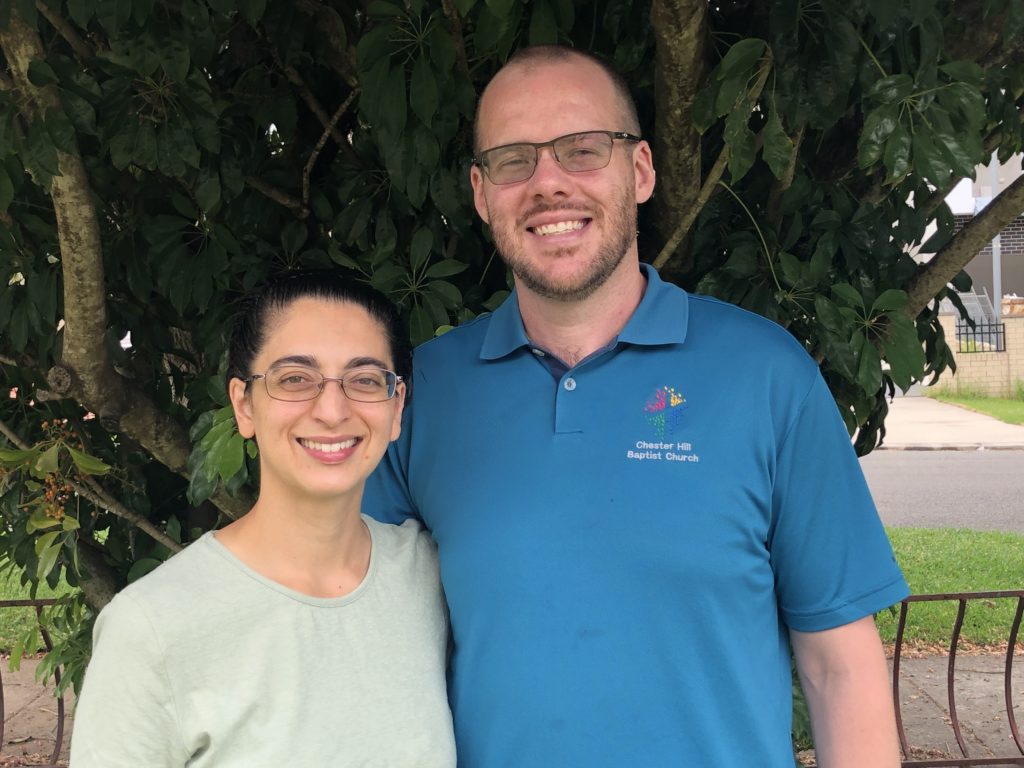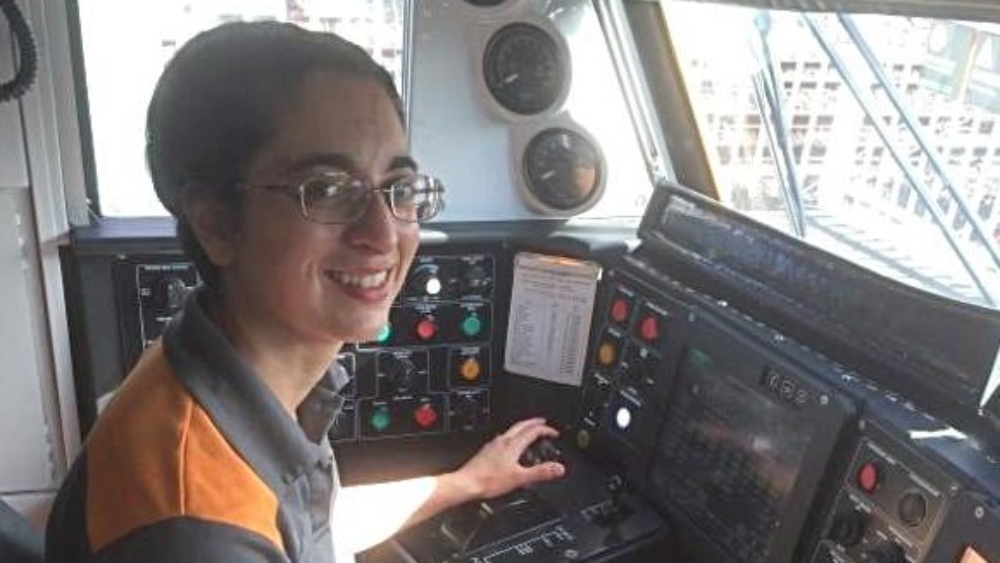‘I drive trains so my husband can preach part-time’
Meet a family doing ministry in a counter-cultural way
When Thea Pratt goes to work as a train driver on the Sydney train network, she enjoys the solitude and long silences. As a mother of four young children, she also appreciates the opportunity to reflect.
“I enjoy hours on my own; I’m an introvert. From a Christian perspective, my gift is prayer. It always has been – and hours on my own gives me that time. I don’t have to search for it, so for me that’s very helpful,” she tells Eternity in her family’s home in Chester Hill, in western Sydney.
“I enjoy hours on my own; I’m an introvert.” – Thea Pratt
As a train driver, Thea earns a high salary – a recognition of the nature of the shift work, and the challenge of controlling a large and complex piece of infrastructure such as an eight-carriage train that can hold up to 2000 passengers at a time.
As she said in a recent article in Sydney Morning Herald, “I actively enjoy the job. I enjoy driving the train. I enjoy my workmates.”
Both she and her husband Ben are grateful that Thea’s salary provides financially for their family and in doing so gives Ben the freedom to be the man of God he feels called to be – working part-time as pastor at Chester Hill Baptist Church and looking after their four children.
The Pratts recognise that their domestic and working arrangements are counter-cultural in the church and therefore confusing for some people who expect a pastor’s wife to be available for free pastoral work.
“While church leadership here is very supportive, it’s been a culture shock for them, as it has been for many others. To say that I’ve faced opposition about our position would be fair,” says Ben as we sit around the dining table in their humble fibro home, with the children occupying themselves in a back room.
Thea adds: “I’ve never had anyone explicitly say it’s unbiblical, but I’ve had people ask if I’m doing the right thing. I’ve just asked them ‘where does the Bible says that the man has to earn more?’ I generally get pointed to the verses where it says a man should provide for his household; I’ve always looked at it from the perspective of providing for your household isn’t just financial. It’s not just financial health – there’s mental, physical, emotional health –and then that’s counterbalanced against the call of God.”
“I want to show them what it means to live within our means and accept less than we may be entitled to.” – Ben Pratt
For his part, Ben has knocked back offers from his church leadership to be paid full-time, which might otherwise allow Thea to stay at home, preferring to use anything extra in the church budget for mission, building works, community engagement, and contingencies such as the national redress scheme.
“To the church I want to show them what it means to live within our means and accept less than we may be entitled to because as Christians we are called to lay down our privilege for the sake of others, we are called to give generously – and how can I call our church to give generously if I’m taking as much as I can?”
Ben points out that there are people from 150 ethnic origins in Chester Hill, a low socio-economic community. This presents a huge mission challenge and opportunity, especially considering their proximity to Villawood Detention Centre. He believes that if he were to “live in a fancy house and go on overseas holidays, I’m not taking up the cross of Christ, I’m not being tabernacled with his people, to use the biblical term. I’m not living as one of them, I’m living above them and that’s ungodly and it’s unhelpful when Paul calls us to be all things to all people.”

Thea and Ben Pratt in the front yard of their home at Chester Hill, western Sydney.
Another reason Ben doesn’t want a full-time time position is to avoid the common trap pastors face of being financially bound to their church, for good or ill, with the “dark risks” of burnout if things turn toxic. The fact that Thea’s income is enough to support them if he needs to step away from the church is “incredibly freeing for us.” He makes the point that a church may keep on a pastor who is unwell or burnt out to spare the family significant hardship.
On top of this, Ben is the first to admit he could never be a traditional pastor because he lives with Aspergers syndrome, as do all of his children. This means that, even though he’s an extrovert, he can’t hold back-to-back events, see 40 people a week or conduct a kids’ camp without having a meltdown and needing recovery time. He simply can’t afford to say, as so many pastors do, “I’m all in,” without bearing a significant personal cost.
“The choices we have made … make us a very counter-cultural ministry family.” – Ben Pratt
“I need time to transition between activities, or I get what is called a ‘sensory overload’, which is pretty similar to how most people feel when they get a hangover. Everything is too bright, too loud, and all you want to do is hide until it all goes away. In that state, anxiety and stress levels are high, and it’s all too easy to get overwhelmed.”
These aspects have all combined to bring the Pratt family to the place where they are now, Thea working rotating 24/7 shifts while Ben is paid part-time and working flexible full-time hours, sharing household duties, and Ben acting as primary carer for the children. It’s a different way of life, a different model of family ministry but, for the Pratts, they wouldn’t have it any other way.
“So yes, our way of living, the choices we have made, and the people this is shaping us and our children to be, make us a very counter-cultural ministry family. But it’s what God has called us to, and there is nothing we would rather do than serve him faithfully here and now.”



